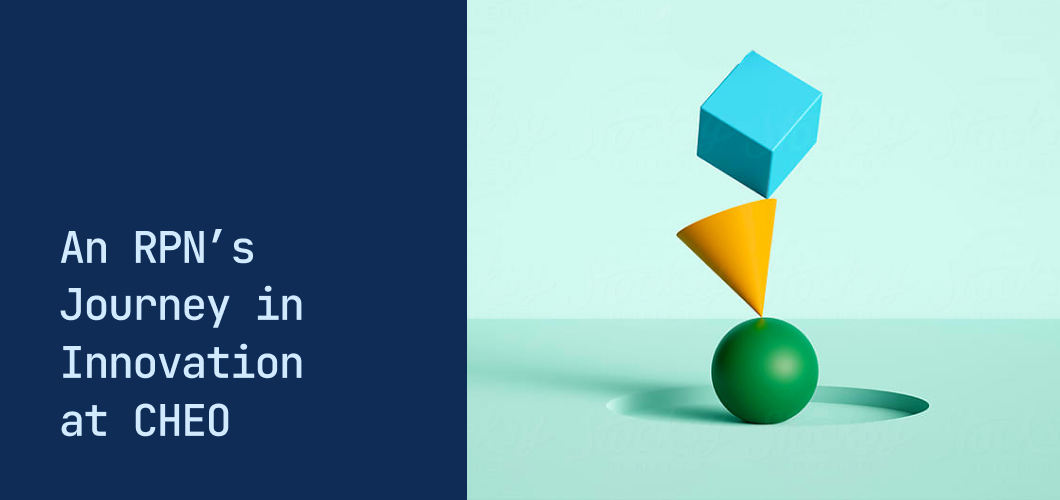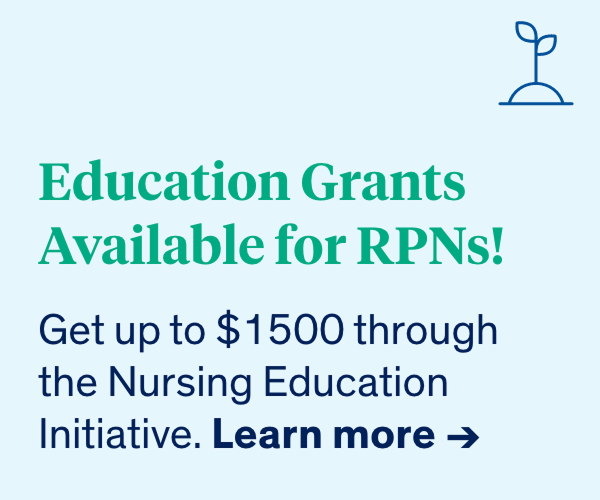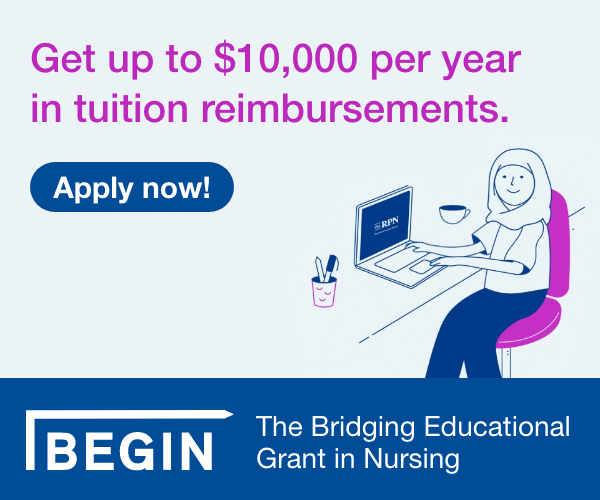For nearly 25 years, Laura Strachan, RPN, has been a steady presence in the Children’s Hospital of Eastern Ontario (CHEO)’s Inpatient Medicine unit. Her path to nursing was nontraditional, her impact significantly demonstrated how RPNs can lead meaningful innovations in healthcare systems.
A Career That Began Unexpectedly
Nursing was not part of her original plan. After completing a degree in Recreation and Leisure Studies, Laura expected to pursue a different path. But when her husband became ill, extended time in hospital led her to reimagine her future.
“I hadn’t really considered nursing before,” she explains. “But watching one nurse in particular made me think, I could do better — with more compassion. That experience sparked an interest I didn’t even know I had.”
With two young children at home and limited access to university programs in the Georgian Bay area, the one-year RPN program offered the most practical option. What began almost by accident quickly became a lifelong career.
Bringing Play into Care
Laura’s background in Recreation and Leisure Studies continues to influence her approach. She sees parallels between helping people live enriched lives and supporting patients to reach their full potential.
“In recreation, you’re helping people live their best lives – and in nursing, it’s the same,” she says. “Sometimes that means addressing medical issues, but sometimes it’s simply through play, music, or recreation. Those tools can still help children live as fully as possible.”
Devotion to Pediatrics
Drawn to children’s care from the outset, she was determined to work at CHEO, where she herself had been a patient. She has remained in the Inpatient Medicine unit for over two decades, specializing in care for babies and toddlers, many of whom are graduates of the neonatal intensive care unit (NICU).
Laura emphasizes the importance of long-term relationships with families: “I love the teaching aspect – helping parents learn how to feed their child safely or empowering them to manage care at home. It’s incredibly rewarding to see babies progress into toddlers and to watch families grow in confidence.
That connection, she says, has kept her motivated year after year: “Their resilience inspires me. The babies are forgiving, joyful, and they remind us of what really matters.”
Innovating Through Technology
In 2017, Laura stepped into a new role as a Super User during CHEO’s launch of Epic, the hospital’s electronic health record system. Though computers had never come naturally, she embraced the chance to receive advanced training and support her colleagues.
“I loved the teaching aspect of it,” she recalls. “I could sit with colleagues who were struggling, walk them through it, and we’d often learn from each other. The younger nurses had so much to teach me, too.”
The role highlighted how RPNs can bridge clinical care and informatics – and it sparked her ongoing interest in improving digital systems for staff and families alike.
Virtual Rounds in a Pandemic
Laura’s leadership became especially visible during the COVID-19 pandemic. With restrictions limiting how many people could enter patient rooms, traditional in-person rounds became impossible. To preserve collaboration and family involvement, she helped pioneer Virtual Rounds on her unit.
The model connected physicians, nurses, and families through secure video platforms. Nurses acted as liaisons, providing iPads and facilitating conversations between families and medical teams.
“It wasn’t perfect – technology was new for many of us, and there were challenges with privacy, comfort, and connectivity,” she admits. “But parents were again part of the plan, and that was the most important thing. Many even preferred it, because it felt less overwhelming than ten people standing at their child’s bedside.”
Weekly reviews allowed the team to refine the process, and ultimately, Virtual Rounds became a vital bridge during a time of disruption.
A Philosophy of Small but Meaningful Change
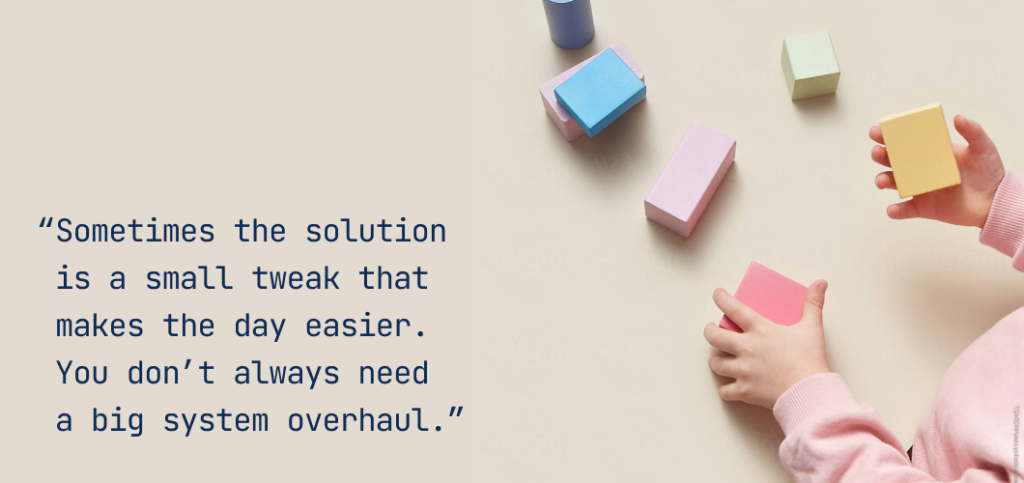
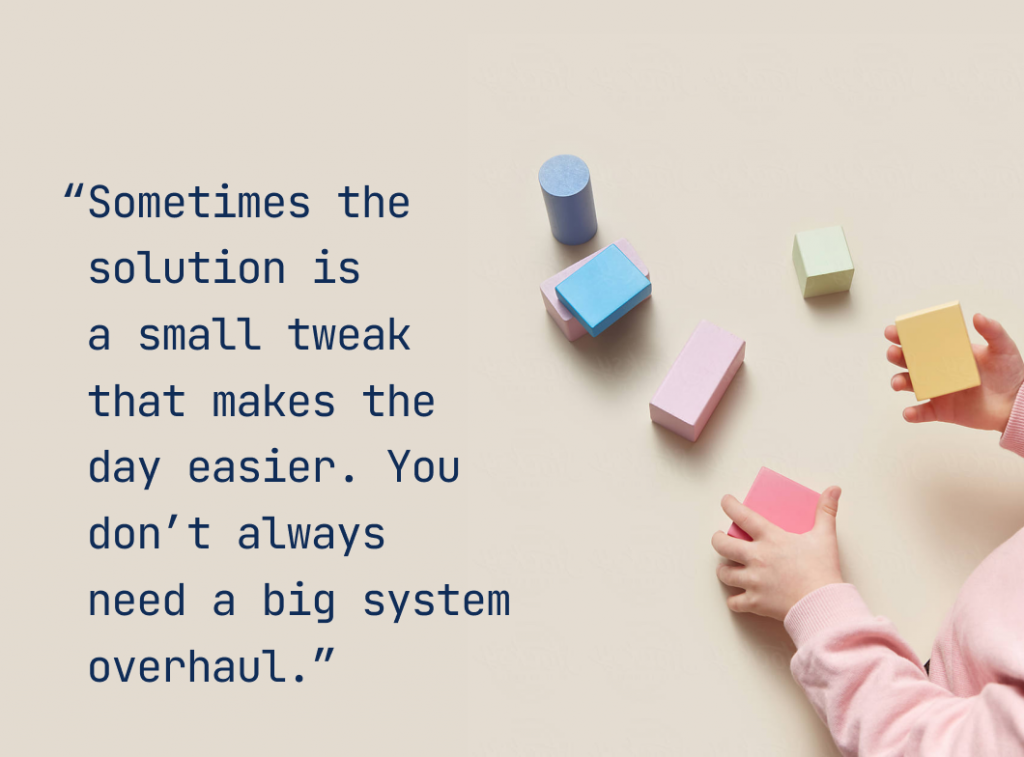
Laura’s approach to innovation is rooted in attentiveness. “Honestly, a lot of it is just listening,” she says. “Families and nurses will tell you what’s not working, if you pay attention. Sometimes the solution is a small tweak that makes the day easier. You don’t always need a big system overhaul.”
Her philosophy has earned her credibility with colleagues over time. “At first there was skepticism – people thought, ‘Here she goes again with another idea,’” she laughs. “But as things worked, the trust grew. Now people come to me for help, and the organization has been really supportive, especially in giving me time to work in clinical informatics.”
Looking Ahead
Today, Laura is eager to continue shaping how technology supports both nurses and families. She hopes to streamline Epic documentation, reduce administrative burdens, and expand tools that provide families with real-time information.
Her advice to other RPNs is simple but powerful: “Don’t be afraid to speak up. Your perspective matters, even if you think, ‘I’m just an RPN.’ Find allies, be persistent, and believe that your voice counts. Change in healthcare is slow, but it is possible.”
From bedside care to digital transformation, Laura’s career shows how RPNs can drive both practical improvements and system-wide innovations. As she puts it: “I may not have set out to be a nurse, but I can’t imagine doing anything else.”
